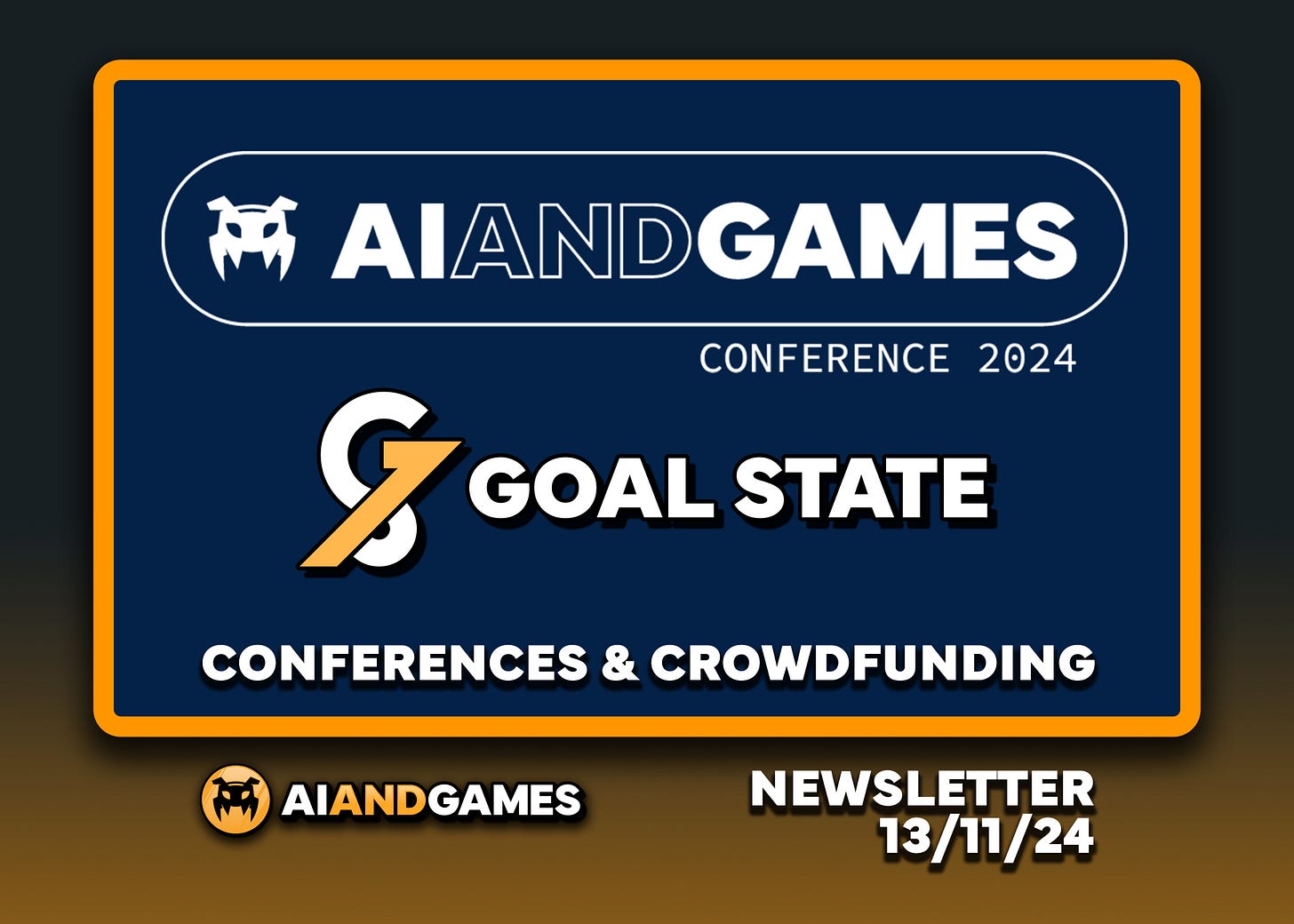Crowdfunding & Conferences | AI and Games Newsletter 13/11/2024
In the sweet spot between the two biggest things AI and Games has ever done...
Keep reading with a 7-day free trial
Subscribe to AI and Games to keep reading this post and get 7 days of free access to the full post archives.



